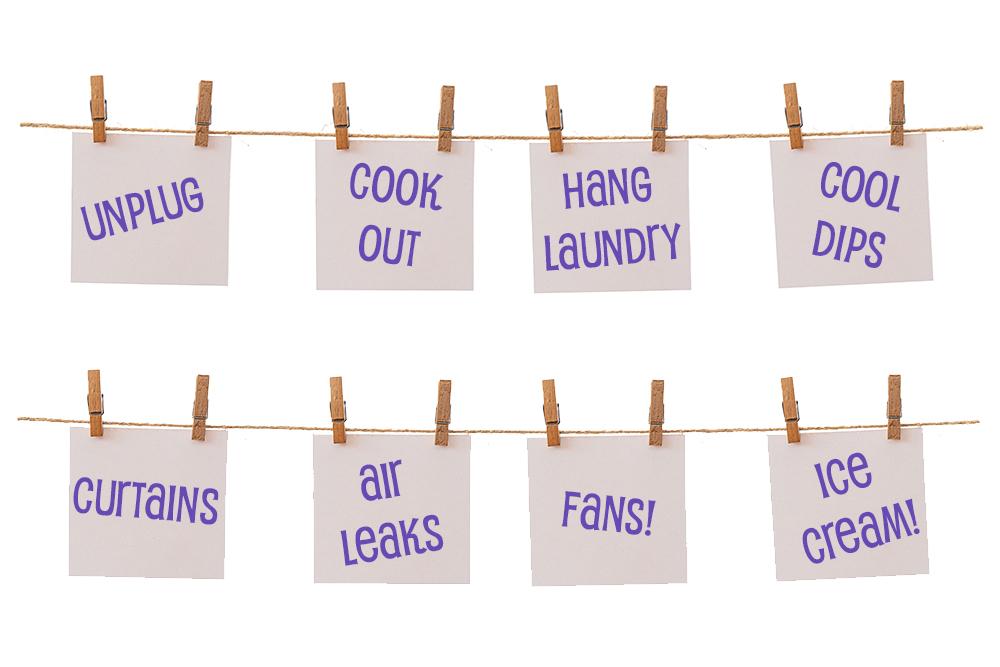Please call 1-800-794-1989 or use the SmartHub mobile app. To talk to a person, press zero.
- Avoid adding heat to your home
Everything that is plugged in lets off a little heat. Unplug any appliances that you are not using. Try not to use the oven. Cook meals outside on the grill. Leave the lights off as long as possible. When you do turn them on, use cooler-running LED bulbs to reduce the amount of heat radiating from the bulb, and save money on energy use as well.
- Try some old-fashioned tips to keep cool
Open your windows to ventilate your home when it’s cooler outside than your thermostat is set. Wash laundry in cold water and hang it out to dry. What we eat affects the temperature of our bodies, so this is why so many people enjoy cool or room temperature meals in the summer, like salads and cold cuts. Eat some ice cream. Wrap some ice cubes in a cloth and place them on your pulse points like your wrist and neck to cool down quickly. Fill the tub with cool water and soak your feet (or your whole body). Sleep or hang out in the basement—it’s typically cooler down there. Go to the library, museum or shopping center.
- Use fans strategically
Fans use much less energy than your air conditioner. Portable fans help distribute cool air more effectively around the room so your AC might need to run less frequently. Ceiling fans should rotate counterclockwise in the summer to create a cooling breeze, allowing you to raise the thermostat 4°F and maintain the same level of comfort. However, keep in mind that fans make you feel cooler, but don’t actually reduce temperatures. Turn them off when you are not in the room. Exhaust fans in your kitchen and bathroom remove heat and humidity, reducing the load on your AC.
- Watch out for windows
Windows can cause roughly 40% of unwanted heat in our homes, because nearly 76% of sunlight that falls on windows enters your home to become heat. Once the sun starts peeping through your windows, close the shutters, lower the blinds, and pull the curtains over your windows to cool the space up to 20°F. Use insulated or blackout curtains, and consider adding reflective or radiant barriers in the attic to reflect heat away from your home.
- Consider air leaks
Check for gaps around windows, doors, and ducts. Use weather stripping and caulking to seal leaks and prevent air exchange. Fixing air leaks can result in energy savings of 5 to 20%. This is because air leaks can account for 30 to 40% of a home's heating and cooling loss, and they can also damage insulation. On the other hand, where you don’t want to block air is in your HVAC system. Have each unit serviced annually and change filters as recommended. A clogged filter can reduce efficiency up to 50%.

